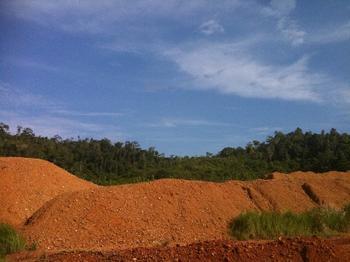 A few days ago, the Indonesian Minister of Mines stated that due to the limited availability of domestic smelters, it is impossible for the government to implement a ban on ore exports in 2014. However, as it will take several years to amend the law, the government has not considered amending the 2009 Mining Act. It is only considering whether there are loopholes in the legal provisions. By remedying legal loopholes, the mine owners will continue to implement the construction plan and guarantee government revenue.
A few days ago, the Indonesian Minister of Mines stated that due to the limited availability of domestic smelters, it is impossible for the government to implement a ban on ore exports in 2014. However, as it will take several years to amend the law, the government has not considered amending the 2009 Mining Act. It is only considering whether there are loopholes in the legal provisions. By remedying legal loopholes, the mine owners will continue to implement the construction plan and guarantee government revenue. Indonesia's Minister of Mines, Jero Wacik, said that it would limit the export of manufacturers that have not implemented a factory construction plan, and will increase nickel ore export tariffs. The minister reiterated that the law requires all mine owners to submit plans to build factories before 2014 to promote the processing of raw ore in the country. This remark was opposed by the Indonesian Mining Association's Martiono Hadianto. Martiono Hadianto believes that not all of the original ore is suitable for processing in Indonesia. The results of the ITB study show that only iron ore, bauxite, nickel ore, copper and zinc ore can be processed domestically. Domestic processing requires available resource reserves, material consumption, and financial investments that can be recovered. But to build a smelter, it will take two years to raise funds. For example, the construction of a copper smelter with an annual capacity of 200,000 tons will cost US$1.2 billion, and under the current copper price, the recovery cost will take 28 years.
Martiono Hadianto urged the government to decide as soon as possible whether it is necessary to implement this plan to facilitate the contract between the mine owners and the buyer.
Martiono Hadianto reminded the government that if it insists on implementing the nickel ore ban next year, it will lose 8.1 billion U.S. dollars each year in the Freeport and NNT (Newmont Nusa Tenggara) areas of Indonesia. Because there is no smelting capacity in the NNT area, Freeport processes only a small amount of copper.
At present, only a small number of state-controlled mining companies have their own smelters, such as Aneka Tambang.
MartionoHadianto said that at least two mines will experience production cuts, and the ban will also have the consequences of unemployment.
MartionoHadianto said that the domestic copper industry also does not have sufficient demand. At present, the domestic copper industry is very underdeveloped, with an annual growth rate of only 2% to 3%.
According to Panggah Susanto, director of the Manufacturing Industry Bureau of the Indonesian Ministry of Industry, the government is currently planning to build roads to develop the domestic basic metal industry, thereby increasing the demand for mineral products. He said that manufacturing accounts for 25.75% of the GDP, but only 2% comes from the basic metal industry.
Intergrated Led Emergency Modules
The Intergrated Led Emergency Modules is match the compact LED fittings to improve the emergency function. Normally it is workable for small wattage from 3-60W LED panels, downlights, led tubes, tri-proof ceilings. Full power output or half power emergency output is optional. Customized emergency lighting time is available. Automatic lighting up when main power failures. Widely using for home, parking lot, office, building, warehouse, school, hospital, workshop etc.
Emergency Light Module,Emergency Led Flasher Module,Led Emergency Modules,Intergrated Led,led light with emergency battery
Foshan Nai An Lighting Electric Co.,ltd , https://www.ledpowerpack.com